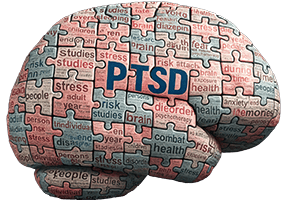
ADHD and PTSD: Understanding the Overlap and Differences
Both ADHD and post-traumatic stress disorder (PTSD) can profoundly affect how a person thinks, feels, and functions day to day. While they are distinct conditions, they often intersect — especially when early life stress or trauma is part of someone’s story.
What They Are
ADHD is a neurodevelopmental difference — a way the brain manages attention, impulse control, and motivation. It is not caused by trauma, but experiences of trauma can intensify ADHD symptoms or make them harder to recognize.
PTSD is a trauma-related condition that develops after experiencing or witnessing a deeply distressing event such as abuse, violence, an accident, or disaster. It can lead to flashbacks, intrusive memories, emotional numbness, or hyper-alertness that keeps the nervous system in survival mode.
How They Can Look Similar
CADDRA notes that trauma can influence attention, mood, and self-regulation in ways that mimic or mask ADHD. Both ADHD and PTSD may involve:
- Trouble focusing or remembering details
- Restlessness or feeling constantly “on edge”
- Irritability and emotional reactivity
- Sleep difficulties or fatigue
Because of these overlaps, ADHD is sometimes missed when trauma is present, or PTSD may be misinterpreted as ADHD. A careful clinical assessment helps to clarify what’s driving the symptoms.
Where They Differ
While both affect attention and emotional regulation, their root causes and experiences differ:
PTSD centers on a specific traumatic event and often includes flashbacks, nightmares, and avoidance of reminders.
ADHD begins in childhood, reflects a lifelong pattern of attention and regulation differences, and typically involves inconsistent focus, impulsivity, or disorganization rather than re-experiencing trauma.
Trauma and ADHD Together
Exposure to early or chronic stress can worsen ADHD symptoms or increase emotional sensitivity. Research cited in the CADDRA Guidelines shows that childhood trauma can predict persistence of ADHD into adulthood. Recognizing both conditions allows for more compassionate, effective care that supports safety, structure, and self-understanding.
Treatment and Support
Because ADHD and PTSD affect the brain differently, their treatments differ — though they can complement each other:
- ADHD care may include medication, coaching, and skills for organization, focus, and emotional regulation.
- PTSD treatment may involve therapy, such as CBT (a specialized form of CBT, trauma-focused CBT, is particularly effective), EMDR, CPT or somatic approaches that restore safety and calm.
If you or someone you know experiences symptoms of either or both, connecting with a licensed mental health professional who understands both trauma and neurodiversity can help tailor the right support plan.
